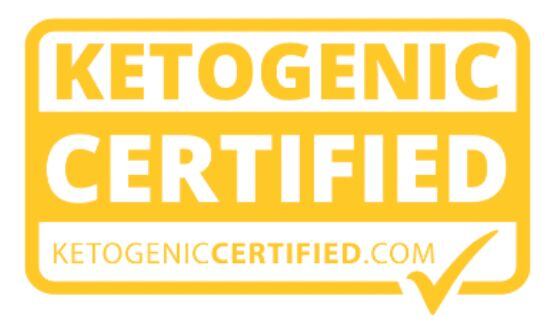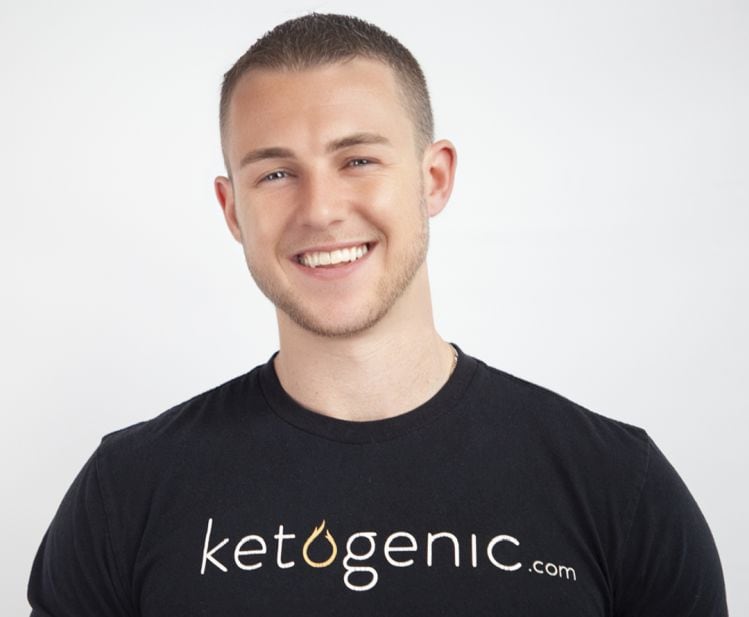As with any diet (candy and soda are ‘plant-based’), some choices are better than others, said Lowery, noting that you can maintain a state of ketosis (whereby you’re burning fat, not carbs) on a diet of Big Macs (minus the bun) and keto peanut butter cups, but that’s probably not a great long-term strategy for optimal health.
“I think the whole sticking butter in your coffee and adding coconut oil to everything, I think those days are over,” said Lowery, who has published widely on human performance and sports nutrition with a focus on the impact of ketogenic diets and exogenous ketones on performance, cognitive function, and longevity.
“I think people are transitioning with keto and eating more of a higher protein ketogenic diet than an 80, 90% fat ketogenic diet, which is more of a therapeutic ketogenic diet, utilized for epilepsy and some other conditions. Now we're starting to see more people eat 60 - 70% fat and trying to eat a well-formulated whole foods based diet.”
'You want to focus on whole foods… but most people want some [keto] snack options and treats'
While many ‘keto’ packaged foods products are what you might call ‘highly processed,’ with a long list of ingredients and a tendency to rely heavily on a small group of go-to ingredients you won’t find in Grandma’s kitchen (erythritol, stevia, sucralose, soluble corn fiber, allulose), these are often treats or snacks that should be used to supplement your diet, not form the basis of every meal, he said.
“The first thing I say to people is that you want to focus on whole foods. But the reality is, most people want some snack options and treats.”
He added: ‘I’ve been keto for over 10 years, and what I typically tell people is that in every meal, you should aim for quality sources of protein, four to six ounces of quality protein, add fibrous carbohydrates [such as vegetables and salads] and then use fat as a lever, so if you're really hungry, add a little bit of butter or some dressing. You don't need to force fat into your diet and add butter to every cup of coffee. It's unnecessary.”
‘You don't need to force fat into your diet and add butter to every cup of coffee’
While many dietitians query the premise of a diet that limits or excludes everything from whole grain farro, brown rice and quinoa, to chickpeas, lentils, black beans, apples and bananas, keto doesn’t mean bacon 24:7, stressed Lowery.
“We encourage people to eat leafy greens, cauliflower is a big part of a well formulated ketogenic diet, plus broccoli, spinach, and asparagus, all of those have carbs in them, but they're mostly fiber. Brazil nuts, macadamia nuts, they’re also fine.
“One of my favorite things is a Cobb salad, so I get a little bit of grilled chicken and salad, and then dinner is high quality ground beef, steak, some type of vegetable, and sometimes I'll do a side salad with that as well, so pretty simple stuff.”
‘We just saw people coming out and labeling products as keto early on with no rhyme or reason behind it’
The ketogenic certification scheme, which has now verified more than 120 products, emerged from frustration, claims Lowery, who notes that it is attracting moderate to large CPG brands such as Quest Nutrition and Blue Diamond rather than startups or SMEs, who “are looking for a cheaper way to just have keto on their product so are opting for the basic certifications [that do not require product testing].
“We saw people coming out and labeling products as keto early on with no rhyme or reason behind it, which was super confusing, so we felt there was a need to have some clarification so consumers knew what to trust. What sets us apart is that we have a lab in Tampa, Florida, called ASPI [Applied Science and Performance Institute] Labs, where we do testing to see if products will spike people’s glucose.
“ASPI is a separate company [that specializes in human performance testing, from body composition and arterial function to resting metabolism], from Ketogenic.com, but I'm partnered in it so we can leverage those resources for the ketogenic certified testing.”
Ketogenic Certified products have a fixed ratio of macronutrients (think of a Quest Nutrition peanut butter cup), whereas Ketogenic Friendly products might encompass something like a sugar-free Gatorade that doesn’t contain fats and proteins, he said.
But testing is key, says Lowery, noting that some companies, for example, will include ‘tapioca fiber’ in products, which comes in different forms, and might mean isomalto-oligosaccharides (IMOs), which are not considered to be dietary fibers by the FDA and can bump up blood sugar.
Testing: ‘Some bump in blood sugar is perfectly fine; what we’re looking at is will it knock someone out of ketosis and is it out of a normal range’
Some bump in blood sugar is perfectly fine, said Lowery. "What we’re looking at is will it knock someone out of ketosis and is it out of a normal range?
“So we've done standardized testing where we've taken a ketogenic meal, something that's 75% fat, 20% protein, 5% carbs, and we've done tons of blood glucose testing, to look at what’s a normal variation. And so we have a window in which as long as your product stays within that, you're good. If it falls out of that window, something's up.”
For someone with epilepsy, for example, a product that is inaccurately ketogenic certified and throws you out of ketosis “can mean the difference between having a seizure or not,” he pointed out.
For everyone else, let’s say that an individual product knocked you out of ketosis, he said, “Could you get back in throughout the course of the day? Sure, but the reality is most people that are consuming these [packaged] keto products aren't just consuming them once a week; they're probably eating these cookies or brownies as their [daily] night time keto snack.”
‘I think a lot of people come into keto for short term weight loss, but then see other benefits’
But how sustainable is a diet excluding pantry staples from bread to bananas, and requiring a pretty fanatical level of monitoring and measuring (from blood tests to breathalyzers)?
There’s no question keto can be a challenging dietary pattern to sustain, he acknowledged.
“I think a lot of people come into keto for short term weight loss, but then see other benefits around improved cognitive function or clearer less foggy thinking,” claimed Lowery, who refers to Alzheimer’s disease as ‘type three diabetes’ [some researchers argue that insulin dysregulation could contribute to neurodegeneration].
“I think the cognitive benefits of keto are way under talked about. Then there's the anti-inflammatory effects of ketosis as you're cutting out a lot of those refined carbohydrates that are probably contributing at some level to inflammation. So people just report feeling better, as well as having better focus.
“The benefits of keto for short-term weight loss and body composition are great, but I'm personally most interested in the longevity and brain benefits that ketosis offers.”
Keto is not the only tool in the toolbox
That said, keto is not the only game in town when it comes to optimal dietary patterns, he concedes, acknowledging that there is nothing wrong, per se, with a bowl of whole grain farro with some black beans (both are excluded on the keto diet as they are too high in carbohydrate despite their fiber and protein content).
“The problem is that most people aren't consuming whole foods or high-quality [complex] carbohydrates; they are eating highly processed refined carbohydrates in very large amounts. Keto is just a tool, but it’s by no means the only tool in the toolbox to help people on the road to overall health and longevity.”

Ketogenic Certified products must not contain sugar alcohols including maltitol and sorbitol that are known to have a metabolic impact, although up to 15g erythritol per serving is permitted. The total added sugar content may not exceed 2g per serving. There is a minimum 1:1 macronutrient ratio (1 gram of fat for every 1 gram of protein and carbohydrates) requirement. All vegetable oils must contain a minimum 2:1 ratio of omega 3s and omega 9s to omega 6.
Further reading:


